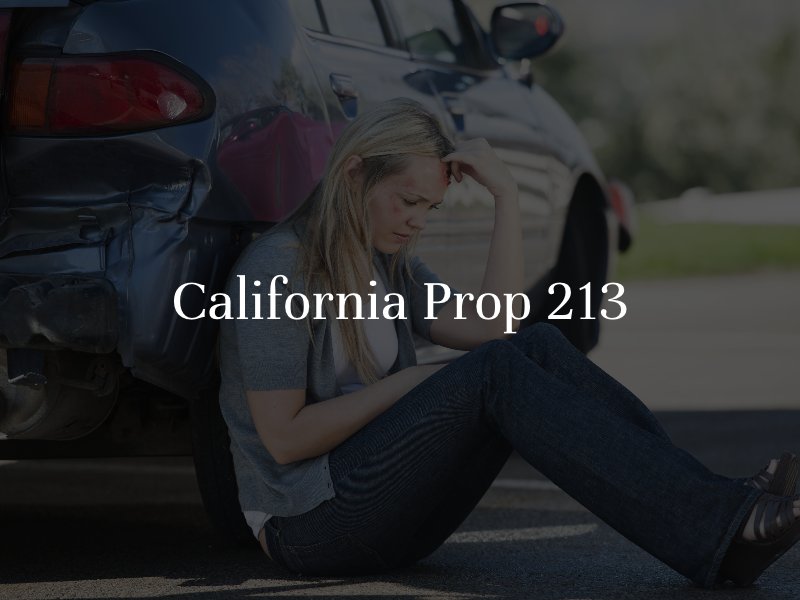California’s Proposition 213 applies to uninsured drivers, preventing them from collecting compensation for pain and suffering even if they are not at fault for an accident. This legislation received widespread support in response to higher insurance premiums and the increasing number of uninsured drivers on the road.
Can Uninsured Drivers Receive any Compensation?
Under Prop 213, uninsured drivers involved in an accident in California can still recover economic damages, for instance, compensation for medical bills, lost income, and property damage. They cannot pursue or receive non-economic damages, such as pain and suffering, emotional distress, disability, disfigurement, loss of enjoyment of life, etc. However, California’s law of pure comparative negligence will apply. Under this rule, each party involved in an accident is assigned a percentage of fault that reduces their compensation accordingly. For example, if the uninsured driver is awarded $50,000 in economic damages but they were 60% to blame, they will only receive 40% of the award, or $20,000.
Does Prop 213 Apply to Passengers of an Uninsured Driver?
Prop 213 does not apply to uninsured driver’s passengers injured in an accident. Passengers are entitled to full compensation for their injuries, pain and suffering, and any other losses.
Proposition 213 Exceptions
There are some exceptions to Proposition 213, including the following scenarios:
- Drivers of company-owned vehicles whose employers fail to obtain auto insurance.
- If the uninsured driver is an innocent spouse who did not know their spouse failed to purchase insurance coverage.
- Motor vehicle accidents on private property.
- Drivers who carry insurance coverage and borrow an uninsured car.
- Passengers of uninsured vehicles as long as they are not the vehicle owner.
When an accident involves a drunk driver, uninsured drivers are not exempt from Prop 213.
Other Penalties for Uninsured Drivers in California
Uninsured drivers in California can face additional penalties depending on whether it is their first or subsequent offense.
- First offense: A fine between $100 and $200
- Second (and subsequent) offense: A fine between $200 and $500
- Filing of an SR-22 certificate
- Possible suspension of the vehicle’s registration or license
- Reinstatement fees
After a collision, an uninsured driver will lose their license for one year. After that, it can be reinstated, but they will have to pay higher premiums for auto insurance since their insurance company will have to file an SR-22 for the following three years. An SR-22 is a “Certificate of Financial Responsibility” that confirms a driver is carrying the minimum amount of liability insurance required by law.
What To Do After an Accident if You are Uninsured
Although you are uninsured, the most important thing to do after a car accident is to stay at the scene. The consequences for driving without insurance pale in comparison to those for leaving the scene of a collision. Call 911 if you or anyone else needs medical assistance. If not, notify the police of the accident and exchange information with those involved and any witnesses. Take photos and videos of the area, the vehicles, your injuries, and anything else of importance. If you can prove the other driver was at fault, you can still recover compensation for your medical bills, lost income while you recover, repairs to your vehicle, and any further property damage. Speak to a San Diego accident lawyer today to discuss your case.


